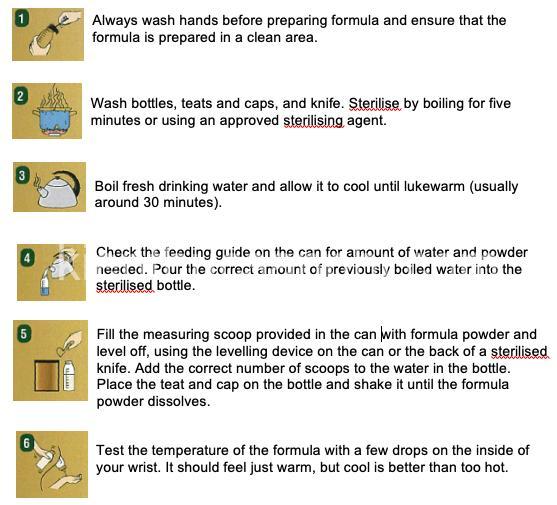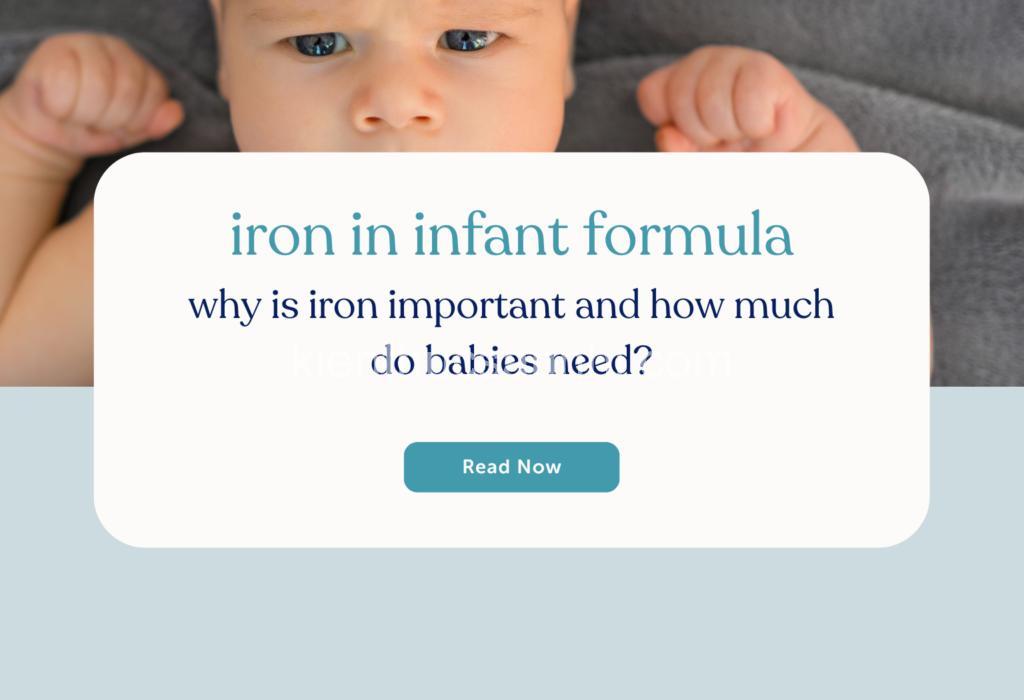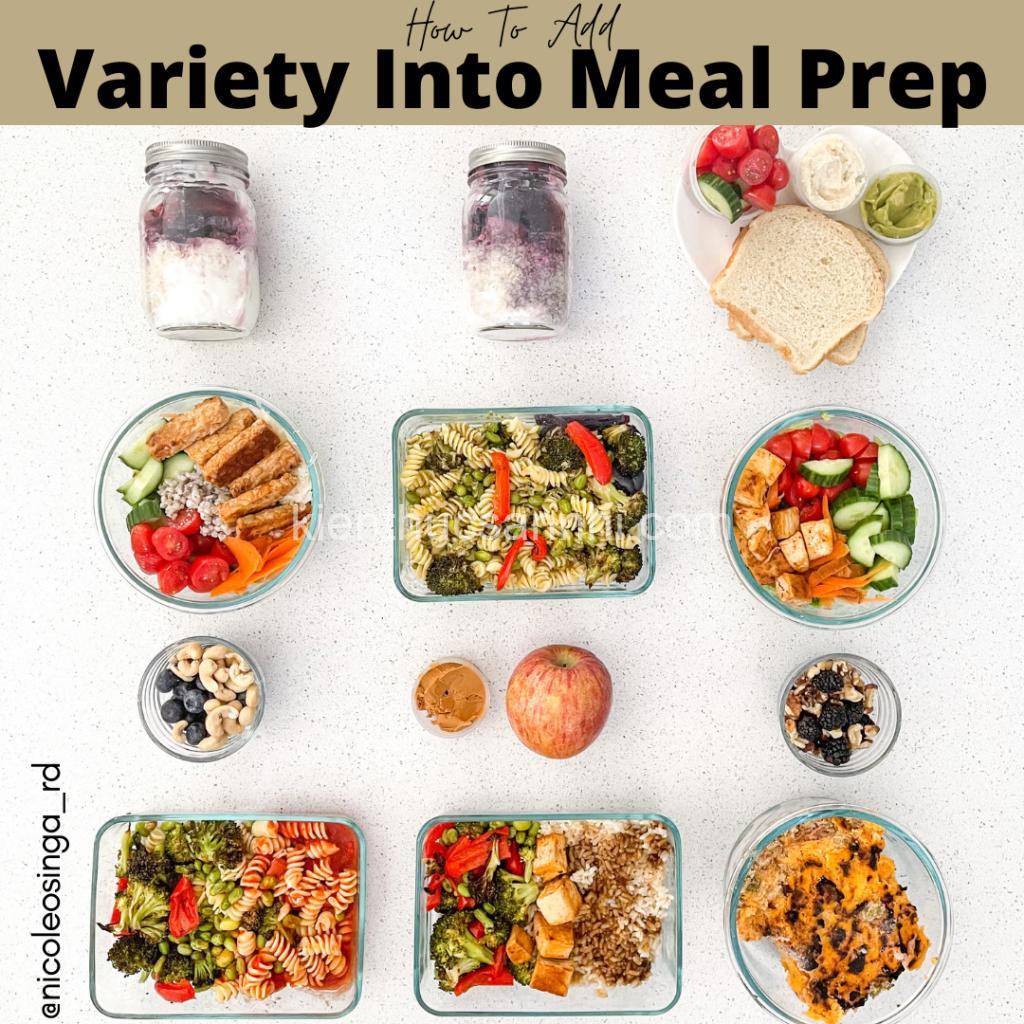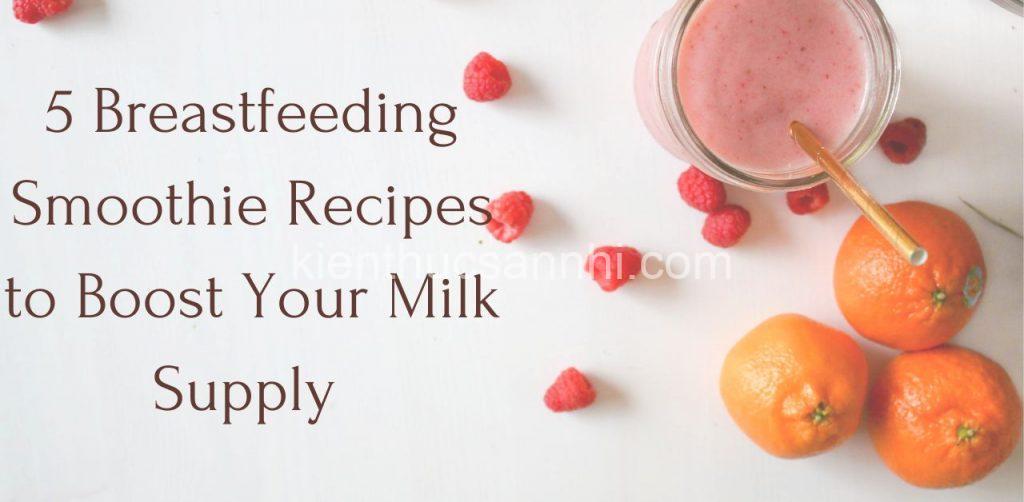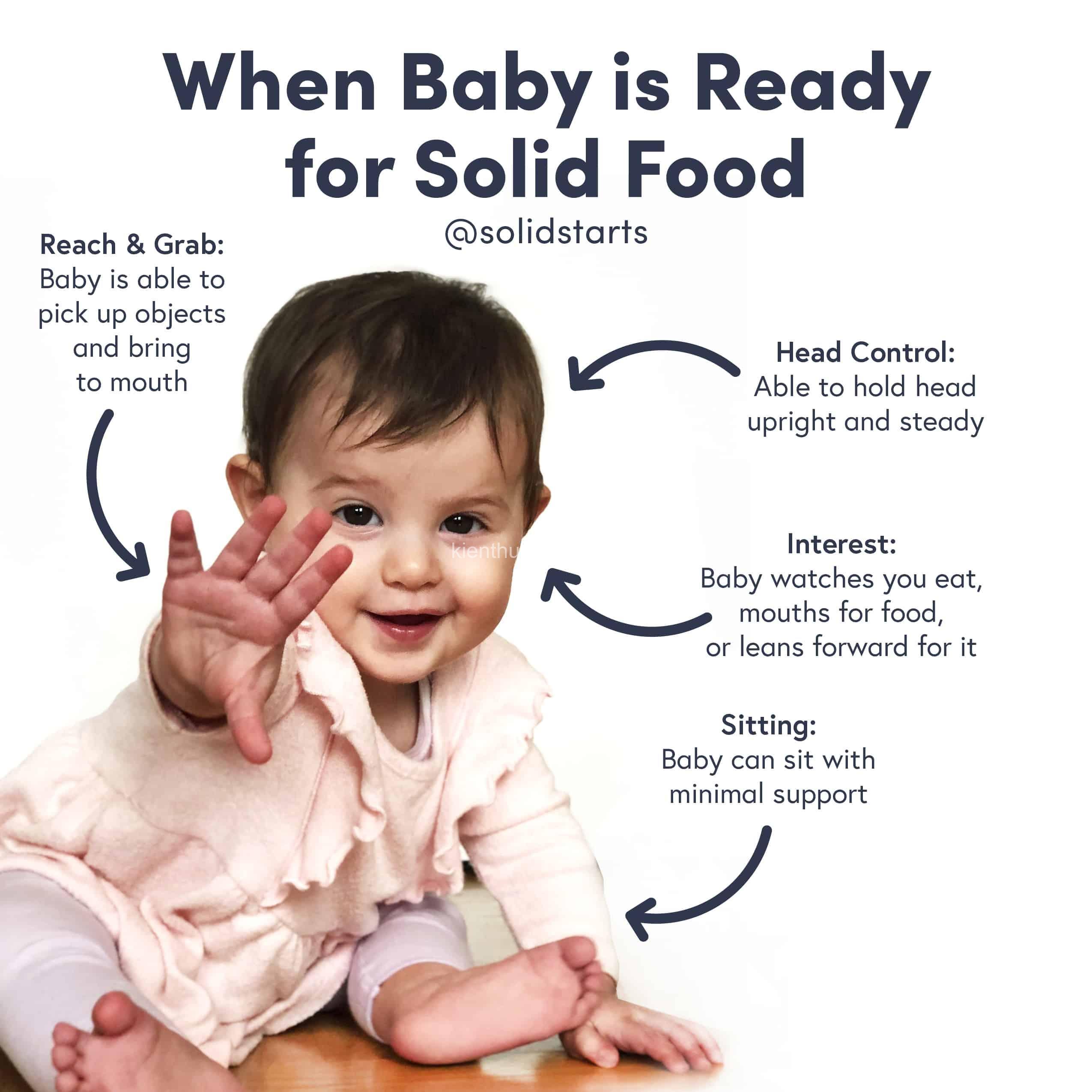
Baby Ready for Solid Foods? Signs & Tips – Kienthucsannhi.com. In today’s article, kienthucsannhi.com will explore with you in the most detailed and complete way. See now!
Recognizing the Physical Signs of Readiness
It’s a moment you’ve been waiting for: your baby’s first taste of solid foods! But how do you know when they’re actually ready? There are certain physical signs that signal your baby is prepared for this new adventure.
Head Control
One of the first signs is head control. This means your baby can hold their head up steadily while sitting up, without it flopping back. Think of it like a mini-weightlifter, strong enough to support their own head. This usually happens around four months of age.
Tongue Thrust Reflex
Another important sign is the tongue thrust reflex. This reflex is essential for breastfeeding because it helps push milk towards the back of the baby’s mouth. But around four to six months of age, this reflex begins to fade, allowing your baby to swallow solid food without pushing it back out of their mouth.
Sitting Up
Being able to sit up with minimal support is a key development for swallowing solids. When your baby can sit upright, gravity helps them to keep the food in their mouth, allowing them to practice chewing and swallowing.
Interest in Food
Finally, observe your baby’s interest in food. Do they reach for your food or look eager to eat? Do they show interest in watching others eat? These are all signs that your baby is curious and eager to explore new tastes and textures.

Beyond Physical Signs: Other Indicators of Readiness
Beyond physical signs, there are a few more things to consider:
Weight Gain
Your baby should have doubled their birth weight before starting solids. This is a general guideline, and your pediatrician can advise on specific weight gain milestones for your baby.
Developmental Milestones
Remember, solid food introduction should be a gradual process. Your baby needs to be ready developmentally as well. By four to six months, they should have mastered other important milestones such as rolling over, grasping objects, and bringing objects to their mouth. These milestones show they’re developing the coordination and fine motor skills necessary for handling food.
The Importance of Timing: Getting It Right
Timing is everything when it comes to introducing solids.
Early Introduction
Starting solids too early can be risky. It might increase the chances of allergies, digestive issues, and even iron deficiency, as the baby’s digestive system isn’t fully developed yet.
Late Introduction
Conversely, waiting too long to introduce solids could lead to iron deficiency, as breast milk or formula may not provide enough iron to meet your baby’s growing needs.
Individual Pace
Each baby develops at their own pace. There is no one-size-fits-all approach to introducing solids. You should follow your baby’s cues and consult with your pediatrician to determine the best timeline for your little one.
Seeking Expert Guidance: Consulting Your Pediatrician
When it comes to making decisions about your baby’s health and development, your pediatrician is your go-to source.
Individualized Assessment
Your pediatrician can assess your baby’s individual readiness for solids, taking into account their physical development, weight, and overall health. They can provide personalized advice and answer any questions you might have.
Personalized Advice
Don’t hesitate to talk to your pediatrician about your baby’s development. They can give you specific tips on how to introduce different foods, the right quantities, and how to monitor your baby’s response to new foods.
Resources and Support: Where to Find More Information
You can find helpful resources and information from reputable websites like the American Academy of Pediatrics, as well as trusted sources like kienthucsannhi.com. We aim to provide you with the latest information and guidance on raising healthy and happy pets.
FAQs about Introducing Solid Foods
What if my baby isn’t showing all of these signs by four months?
Your pediatrician will be able to assess your baby’s individual readiness and provide tailored advice on the best time to start solids.
Is there a specific order I should introduce foods in?
Your pediatrician can recommend a safe and appropriate order for introducing various food groups, considering potential allergies.
How much solid food should I give my baby?
Start with small amounts, like a teaspoon or two, and gradually increase the quantity as your baby gets accustomed to solids.
What if my baby doesn’t like a particular food?
Don’t worry! It’s normal for babies to have preferences. Keep offering a variety of foods and encourage exploration.
What if my baby develops an allergy?
If you suspect your baby is experiencing an allergic reaction to a particular food, contact your pediatrician immediately.
Conclusion
Introducing solids is a significant milestone in your baby’s journey. Observing these signs, seeking expert advice from your pediatrician, and following your baby’s cues will ensure a smooth and enjoyable transition. We hope this information has been helpful. Feel free to leave a comment below, share this article with other parents, or explore more helpful content on our website at kienthucsannhi.com.
[ Entities – Attributes – Values (EAV) ]
- Baby: Age – 4-6 Months
- Baby: Weight Gain – Doubled Birth Weight
- Head Control: Ability – Steady, Upright
- Tongue Thrust Reflex: Reflex – Diminished
- Sitting Up: Support – Minimal
- Interest in Food: Behavior – Reaching, Watching
- Developmental Milestones: Example – Rolling Over, Grasping
- Medical Advice: Source – Pediatrician
- Early Introduction: Risk – Allergies, Digestive Issues
- Late Introduction: Risk – Iron Deficiency
- Timing: Guideline – 4-6 Months
- Baby: Development – Unique Pace
- Baby: Physical Ability – Head Control, Sitting Up
- Baby: Interest – Food
- Food: Type – Solid
- Development: Milestone – Tongue Thrust Diminishing
- Health: Concern – Iron Deficiency
- Doctor: Role – Guidance
- Parent: Action – Observe, Consult
[ Entity, Relation, Entity (ERE) ]
- Baby (Has) Head Control
- Baby (Has) Tongue Thrust
- Baby (Has) Sitting Up Ability
- Baby (Shows) Interest in Food
- Baby (Gains) Weight
- Baby (Reaches) Developmental Milestones
- Baby (Needs) Medical Advice
- Baby (Requires) Solid Foods Introduction
- Early Introduction (Leads to) Allergy Risk
- Early Introduction (Leads to) Digestive Issues
- Late Introduction (Leads to) Iron Deficiency
- Solid Foods (Offer) Nutritional Value
- Solid Foods (Require) Proper Preparation
- Parents (Provide) Solid Foods to Baby
- Doctors (Give) Guidance on Solid Food Introduction
- Time (Plays a Role in) Baby’s Readiness
- Development (Involves) Reaching Milestones
- Head Control (Aids in) Swallowing
- Sitting Up (Helps with) Feeding
- Interest in Food (Indicates) Readiness
[ Semantic Triple ( Subject, Predicate, Object ) ]
- Subject: Baby, Predicate: Has, Object: Head Control
- Subject: Baby, Predicate: Has, Object: Tongue Thrust
- Subject: Baby, Predicate: Has, Object: Sitting Up Ability
- Subject: Baby, Predicate: Shows, Object: Interest in Food
- Subject: Baby, Predicate: Gains, Object: Weight
- Subject: Baby, Predicate: Reaches, Object: Developmental Milestones
- Subject: Baby, Predicate: Needs, Object: Medical Advice
- Subject: Baby, Predicate: Requires, Object: Solid Foods Introduction
- Subject: Early Introduction, Predicate: Leads to, Object: Allergy Risk
- Subject: Early Introduction, Predicate: Leads to, Object: Digestive Issues
- Subject: Late Introduction, Predicate: Leads to, Object: Iron Deficiency
- Subject: Solid Foods, Predicate: Offer, Object: Nutritional Value
- Subject: Solid Foods, Predicate: Require, Object: Proper Preparation
- Subject: Parents, Predicate: Provide, Object: Solid Foods to Baby
- Subject: Doctors, Predicate: Give, Object: Guidance on Solid Food Introduction
- Subject: Time, Predicate: Plays a Role in, Object: Baby’s Readiness
- Subject: Development, Predicate: Involves, Object: Reaching Milestones
- Subject: Head Control, Predicate: Aids in, Object: Swallowing
- Subject: Sitting Up, Predicate: Helps with, Object: Feeding
- Subject: Interest in Food, Predicate: Indicates, Object: Readiness
